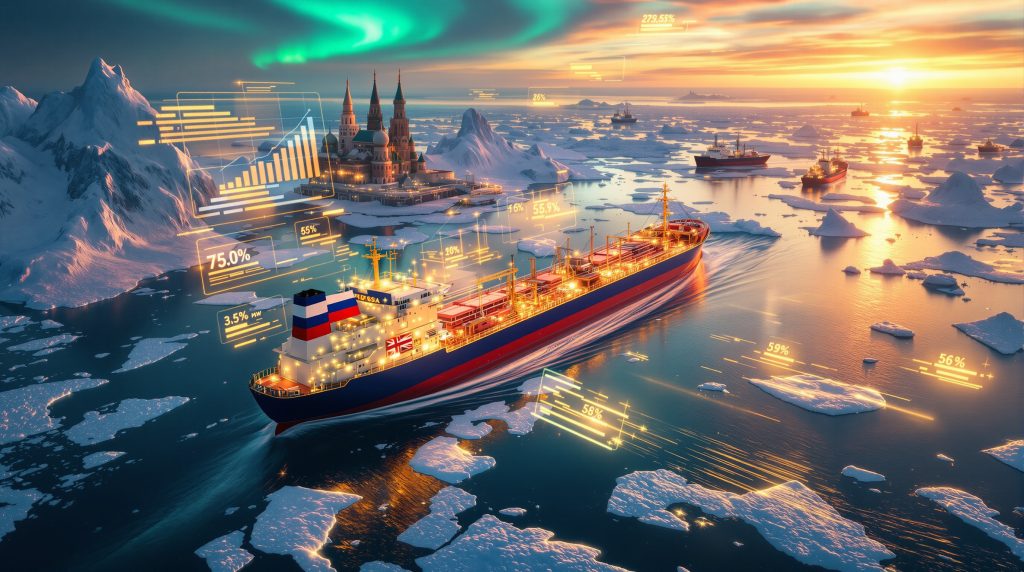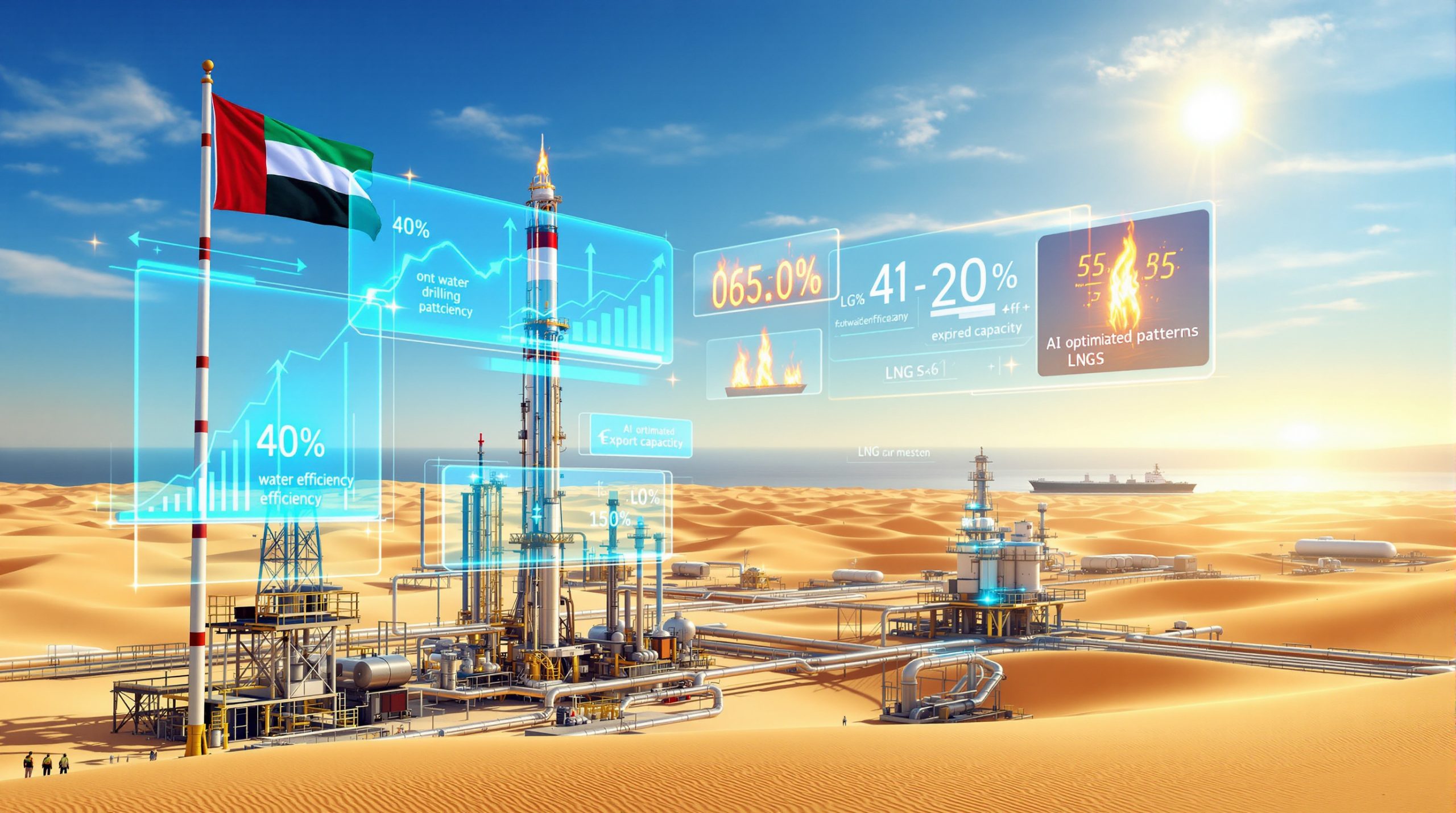Understanding Russia's Arctic Energy Insurance Strategy
Russia's development of a state-controlled insurance framework for Arctic oil shipments represents a strategic pivot in response to escalating international sanctions. This initiative addresses critical coverage gaps created when Western insurers withdrew from Russian energy operations, particularly those utilizing the Northern Sea Route (NSR). The move demonstrates Russia's commitment to maintaining energy export capabilities despite mounting external pressure, particularly in light of broader Russian uranium sanctions affecting multiple sectors.
The establishment of this domestic insurance mechanism reflects broader geopolitical tensions affecting global energy logistics. International reinsurance companies have systematically reduced their exposure to Russian maritime risks, creating vulnerabilities in Russia's energy export infrastructure that the state now seeks to address through centralized coverage solutions.
What Drives Russia's Push for State-Controlled Arctic Insurance?
Multiple strategic factors converge to necessitate Russia's insurance independence initiative. Western sanctions targeting maritime insurance providers have effectively isolated Russian energy shipments from traditional coverage markets, creating urgent operational challenges for Arctic oil exports.
Primary Strategic Drivers:
• Comprehensive sanctions targeting Lloyd's of London and other major marine insurers
• Loss of access to international reinsurance pools worth billions in coverage capacity
• Urgent need to maintain energy export revenue streams exceeding $180 billion annually
• Protection of Arctic shipping investments totaling over $25 billion in infrastructure development
The Northern Sea Route has become increasingly critical to Russian energy strategy, with cargo volumes targeting 80 million tonnes by 2030. Without reliable insurance coverage, this ambitious expansion faces significant obstacles that state intervention aims to resolve through guaranteed coverage mechanisms.
How Will the State Insurance Framework Operate?
Russia's proposed insurance structure integrates multiple domestic financial institutions while addressing specific coverage gaps left by international market withdrawal. The framework leverages existing Russian reinsurance capacity while expanding coverage scope to meet Arctic shipping demands, reflecting similar strategic autonomy measures seen in US economy tariffs discussions.
Core Operational Framework:
• Partnership integration with Russian National Reinsurance Company providing backing capacity
• Centralised underwriting protocols specifically designed for Arctic shipping risks
• Extended coverage encompassing LNG terminal operations across northern facilities
• Coordination with shadow fleet vessel operations requiring specialised risk assessment
Comprehensive Coverage Scope:
• Oil tanker operations along the complete Northern Sea Route corridor
• Novatek LNG facility shipments from Yamal and Arctic LNG 2 projects
• Rosneft northern project exports including Vostok Oil development
• Emergency response protocols and environmental liability frameworks
| Coverage Type | Traditional Market Share | Current Availability | State Alternative Status |
|---|---|---|---|
| Marine Hull Insurance | 85% Western providers | 35% accessible | Under development |
| Cargo Protection | 90% international coverage | 45% available | Expansion planned |
| Environmental Liability | 95% Western reinsurance | 25% accessible | Framework creation |
| War Risk Coverage | 70% Lloyd's market | 15% available | Military coordination |
Technical Challenges of Arctic Insurance Coverage
Arctic shipping environments present unique risk profiles that challenge conventional insurance models. These extreme conditions require specialised coverage approaches that account for environmental hazards, vessel limitations, and infrastructure constraints affecting northern operations.
Environmental Risk Categories:
• Extended ice coverage periods limiting navigation windows to 4-6 months annually
• Extreme weather systems with temperatures reaching minus 40 degrees Celsius
• Limited rescue infrastructure across 5,000+ kilometre shipping routes
• Pristine ecosystem vulnerability requiring specialised environmental protection
Vessel-Related Risk Factors:
• Aging shadow fleet vessels with average ages exceeding 15 years
• Inconsistent regulatory oversight affecting maintenance standards
• Inadequate specialised safety equipment for Arctic conditions
• Crew training deficiencies for extreme environment operations
The technical complexity of Arctic operations demands insurance products capable of addressing multi-layered risks that traditional marine insurance rarely encounters. Ice navigation, emergency response limitations, and environmental sensitivity create coverage requirements that Russia state insurance for Arctic oil shipments must comprehensively address.
International Sanctions Impact on Insurance Availability
The sanctions landscape has fundamentally transformed insurance availability for Russian energy exports, creating market distortions that affect global energy logistics. These restrictions target both direct coverage providers and reinsurance markets essential for large-scale energy operations, similar to the broader Trade war impacts affecting international commerce.
Sanctioned Insurance Entities:
• Ingosstrakh, Russia's largest marine insurer handling 40% of domestic shipping coverage
• Alfastrakhovanie specialised energy coverage provider
• Multiple European reinsurance partnerships severed affecting capacity
• Lloyd's of London syndicate participation restrictions
Market Response Characteristics:
• Western insurers maintaining selective coverage for non-sanctioned activities
• Premium increases ranging from 300-500% for Russian-related maritime risks
• Enhanced due diligence requirements extending processing times
• Geographic coverage restrictions limiting operational flexibility
Premium escalation has created significant cost pressures for Russian energy exports, with insurance expenses increasing from approximately 0.1% to 0.5% of cargo value. These cost impacts directly affect export competitiveness and profit margins for Russian energy companies.
Economic Implications of State-Controlled Insurance
The transition toward state insurance creates substantial economic ramifications affecting both Russian domestic markets and international energy trade. This shift represents a fundamental change in risk allocation from private markets to government balance sheets, reflecting broader economic isolation strategies that parallel Trump tariff implications in other sectors.
Domestic Economic Impact Assessment:
• Reduced insurance costs for state energy companies through subsidised rates
• Increased government financial exposure potentially exceeding $10 billion annually
• Capital requirements for adequate reserve maintenance approaching $5 billion
• Taxpayer liability exposure for major maritime incidents
International Market Effects:
• Reduced transparency in Russian shipping operations affecting market intelligence
• Increased complexity in tracking oil flow patterns for sanctions enforcement
• Environmental liability gaps creating potential international disputes
• Enforcement challenges for international maritime law compliance
The economic model relies heavily on government backing rather than market-based risk assessment, potentially creating moral hazard issues where insufficient risk pricing leads to inadequate safety standards and environmental protection.
Northern Sea Route Development Implications
Russia's Arctic shipping ambitions depend critically on reliable insurance coverage to attract commercial traffic and international investment. The NSR represents a strategic alternative to traditional shipping routes, offering potential time savings of 10-15 days for Asia-Europe trade.
NSR Expansion Targets:
• Freight capacity increases targeting 80 million tonnes annually by 2030
• Year-round navigation capability development requiring icebreaker fleet expansion
• Infrastructure investment exceeding $15 billion in port facilities
• Commercial vessel transit fees generating potential $2 billion revenue
Commercial Viability Factors:
• Insurance cost competitiveness versus Suez Canal route alternatives
• Coverage reliability during maritime incidents affecting route reputation
• International recognition challenges for Russian state insurance
• Environmental compliance standards meeting international requirements
The success of NSR development hinges on insurance framework credibility among international shipping companies. Without recognised coverage, commercial carriers may avoid the route despite potential efficiency gains.
What Impact Could This Have on Global Shipping Routes?
The development of Russia state insurance for Arctic oil shipments could fundamentally alter global shipping patterns. Traditional routes may face reduced traffic as Arctic alternatives become more economically viable, particularly given current Oil price forecast trends suggesting sustained high energy prices.
Furthermore, successful implementation could encourage other Arctic nations to develop similar frameworks, potentially creating competing insurance ecosystems. In addition, the reduced reliance on Western insurance markets may accelerate the development of alternative financial infrastructure.
Global Energy Security Implications
Russia's insurance initiative affects international energy supply chain resilience and market stability. These changes influence global energy flows, pricing mechanisms, and emergency response capabilities across interconnected markets.
Supply Chain Considerations:
• Alternative routing requirements for 5 million barrels daily of Russian exports
• Increased reliance on Asian markets reducing European energy security
• Supply disruption risks during insurance coverage gaps
• Emergency response capability limitations affecting global preparedness
Market Stability Factors:
• Price volatility increases from insurance-related shipping delays
• Reduced transparency affecting accurate market supply assessments
• Sanctions enforcement challenges creating regulatory uncertainty
• Environmental risk externalisation to international waters
Global energy markets face increased uncertainty as traditional risk management mechanisms become fragmented along geopolitical lines, potentially leading to higher volatility and reduced supply security.
Environmental Risk Assessment Framework
Arctic environments face unprecedented risks from increased oil shipping activity under potentially inadequate insurance coverage. The region's ecological fragility demands comprehensive environmental protection that state insurance frameworks must address.
Environmental Vulnerability Analysis:
• Fragile Arctic ecosystems with 50-100 year recovery periods from oil contamination
• Indigenous community dependencies affecting 150,000+ people relying on marine resources
• Climate change acceleration from black carbon emissions increasing regional warming
• Biodiversity protection challenges in marine protected areas
Insurance Coverage Gap Analysis:
• Environmental restoration funding inadequacy for major spill scenarios
• Limited international cooperation frameworks for emergency response
• Unclear liability structures for transboundary environmental damage
• Insufficient coverage for long-term ecological impact compensation
Environmental protection in Arctic regions requires insurance coverage capable of addressing decades-long restoration processes and community impact compensation that traditional maritime insurance rarely contemplates.
Regulatory Framework Governing Arctic Operations
The intersection of domestic Russian regulations, international maritime standards, and sanctions compliance creates complex regulatory environments affecting Arctic insurance operations. Multiple jurisdictional frameworks must align to ensure operational legitimacy.
Russian Regulatory Architecture:
• Central Bank supervision ensuring financial stability and reserve adequacy
• Ministry of Transport oversight for shipping safety and navigation standards
• Environmental protection agency coordination for ecological compliance
• Defence ministry security clearances for strategic shipping routes
International Compliance Challenges:
• IMO standards requiring international recognition and enforcement
• MARPOL environmental protocols affecting Arctic operations
• Sanctions law navigation requiring legal expertise and compliance monitoring
• Flag state jurisdiction complications affecting vessel registration
Regulatory complexity increases operational costs and compliance burdens, potentially undermining the economic advantages that state insurance aims to provide for Russian Arctic shipping.
How Will International Recognition Affect Operations?
International recognition challenges could significantly impact the effectiveness of Russia state insurance for Arctic oil shipments. Without recognised coverage, vessels may face port restrictions and increased scrutiny from international authorities. However, Russia's strategic partnerships with countries like China and India may provide alternative recognition frameworks that support continued operations.
Global Insurance Market Adaptation
Russia's state insurance development influences international maritime insurance practices and market structures. This initiative may encourage other nations to develop similar sovereign insurance capabilities for strategic industries.
Industry Adaptation Responses:
• Enhanced due diligence protocols for Russian-related shipping risks
• Development of sanctions-compliant coverage options maintaining legal compliance
• Increased government agency cooperation for risk assessment
• Geographic risk evaluation refinements incorporating geopolitical factors
Long-term Market Implications:
• Potential state insurance expansion to other Arctic nations including China
• Increased government involvement in commercial insurance markets
• Global insurance market fragmentation along geopolitical boundaries
• Enhanced political risk assessment integration into pricing models
The precedent established by Russia's state insurance initiative may reshape international maritime insurance markets, potentially reducing private sector participation in politically sensitive shipping operations.
Future Arctic Energy Development Outlook
The insurance framework's success significantly influences Arctic energy project viability and international investment patterns. Future development depends on balancing commercial viability with environmental protection and regulatory compliance.
Investment Decision Factors:
• Insurance cost predictability enabling long-term project planning
• Environmental liability coverage adequacy meeting international standards
• Market access implications affecting export route viability
• Regulatory compliance complexity management requiring specialised expertise
Strategic Development Outlook:
• Potential framework expansion to other Arctic energy producers
• Technology transfer implications for ice-capable vessel development
• International cooperation framework development for Arctic shipping
• Climate change adaptation strategy integration affecting operational planning
Russia's state insurance initiative for Arctic oil shipments represents a significant shift in global energy logistics, with implications extending far beyond immediate operational concerns. The framework's development reflects broader trends toward economic nationalism and strategic resource control that may reshape international energy markets for decades.
Disclaimer: This analysis contains forward-looking statements and projections based on current market conditions and regulatory frameworks. Actual outcomes may vary significantly due to changing geopolitical circumstances, environmental factors, and market dynamics. Investment and operational decisions should incorporate comprehensive risk assessment beyond the scope of this analysis.
Want to Capitalise on Global Energy Market Disruptions?
The shifting dynamics of Arctic energy insurance and global supply chains create significant opportunities for astute investors in energy commodities and small-cap exploration companies. Discovery Alert's proprietary Discovery IQ model delivers instant notifications on breakthrough ASX mineral discoveries, helping subscribers identify actionable opportunities as major market changes unfold and position themselves ahead of broader market awareness.




